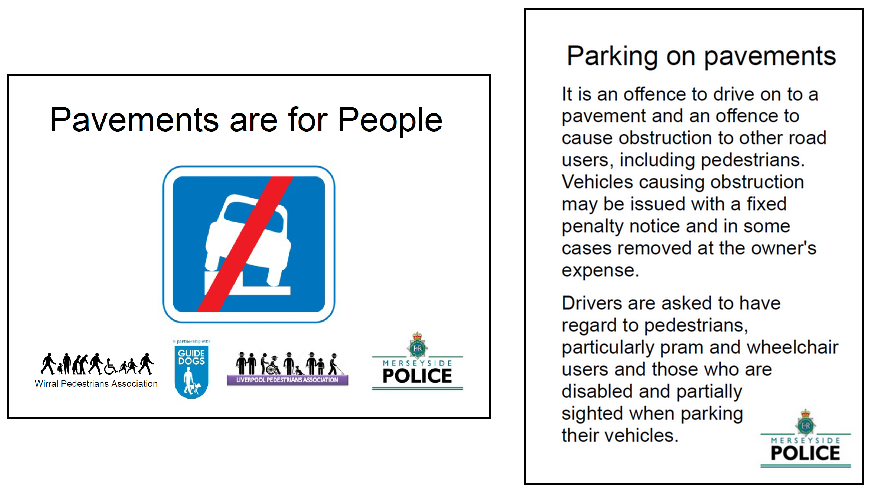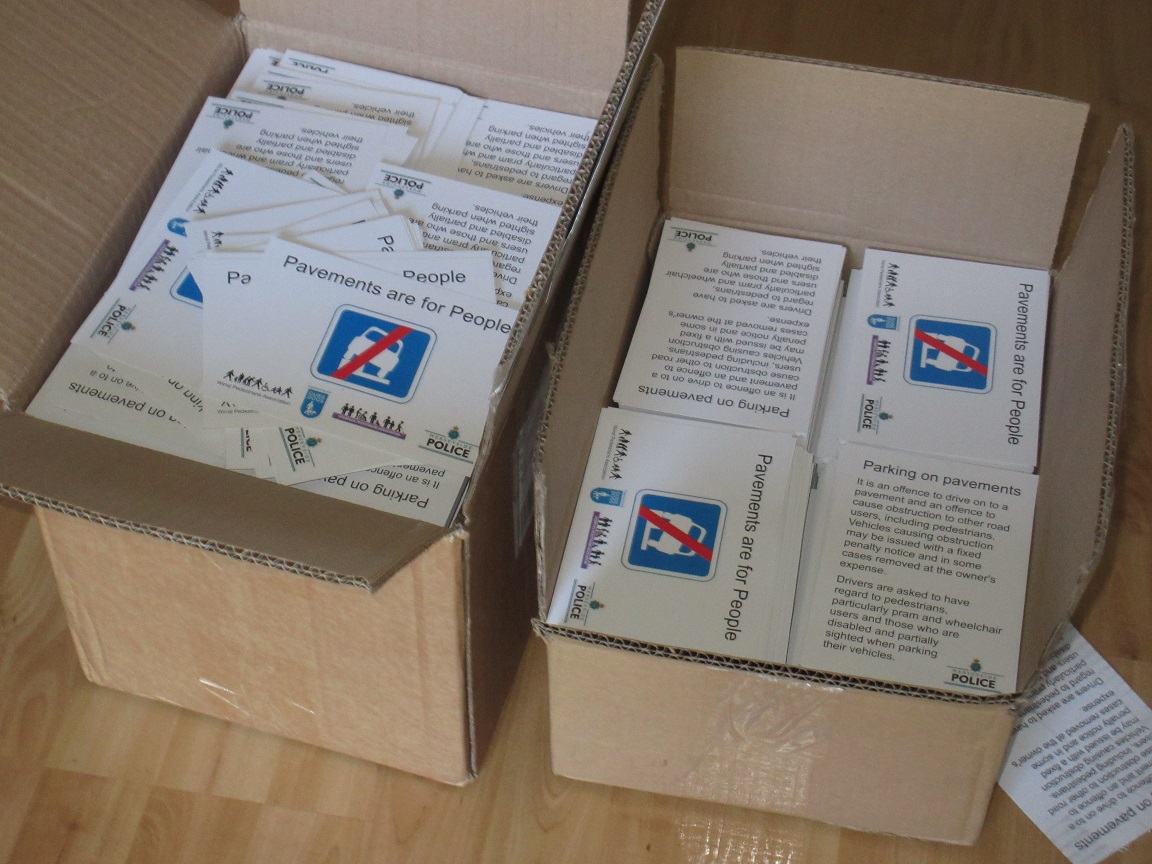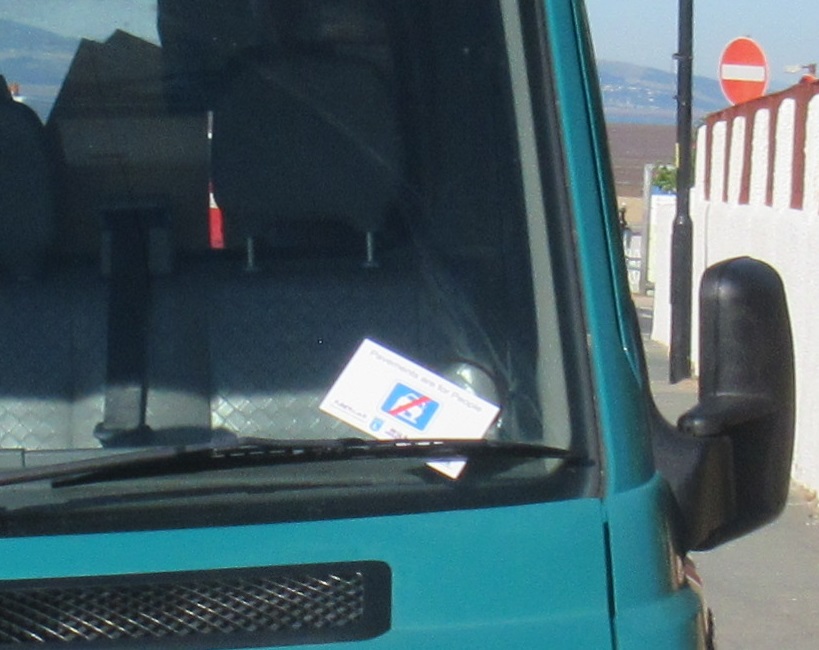
Pavement parking campaign
Pavement parking is illegal, antisocial and dangerous (but can be legalised at specific locations).
Illegal
"Driving onto the pavement is illegal and, in almost all cases, vehicles parked on the pavement will have been driven onto the pavement in breach of this law." This is taken from House of Commons Transport Committee Pavement Parking report (Sep 2019)
Antisocial
Parking vehicles on a pavement invades the pedestrian space and transforms it - children are no longer safe to run around.
Dangerous
Pedestrians can be forced to walk in the road, and at least two children have been killed.
Pavement parking can be legalised
A council can make a Traffic Regulation Order to legalise parking on a particular street using signs and white lines on the pavement.
Read more in our Q and A (joint with Merseyside Police and Merseyside Road Safety Partnership).
Take action
Join our campaigns:
We are working with Merseyside Police and other partners to educate drivers via our A6 windscreen flyers:



Flyers can be obtained from Wirral and Liverpool Pedestrians Associations, and from Merseyside local policing teams.
We also have A4 posters for notice boards in community centres, and A3 wheelie bin stickers.
You can submit photos of pavement parking to Merseyside Police:
1. Via the Merseyside Police website: https://www.merseyside.police.uk/ro/report/rti/rti-b/report-a-road-traffic-incident/. This process should take no more than 10 minutes, or
2. Send an email to pavementparking@merseyside.police.uk. Submit a photo of the vehicle along with details of the location, time and date.
The police will assess the case and where appropriate, send a letter to the owner of the vehicle and take steps to prosecute those owners who ignore letters and continue to offend.
The police assess the importance of issues according to the number of complaints, so the more people submit photos, the higher the police priority will be.
Outside Merseyside, you can download and print out our windscreen flyer template (four per sheet of A4) and use them to educate drivers. They will probably be more effective if you add logos (e.g. put them through the printer twice, or we can produce a .pdf). Ask your local police for theirs - they have a duty to help all members of the community. If the police are reluctant to help, you can complain to the local Police and Crime Commissioner and/or submit a Professional Standards complaint to the police force.
We want to see the Highway Code to be amended so that it is clear that pavement parking is illegal throughout the UK, except where signs permit it. See our Highway Code consultation campaign (closing date 27 October 2020)
Our recommendations
We put forward 10 recommendations in 2013:
1. Merseyside Police officers should stop parking illegally on pavements.
2. Wirral Council officers and contractors should stop parking illegally on pavements.
3. Police officers should stop giving wrong information concerning the legality of parking on pavements.
4. Council officers should stop giving wrong information concerning the legality of parking on pavements.
5. A clear joint statement of what is legal and what is not should be agreed by Police and Council, and websites should be updated accordingly.
6. Police and Council officers should adopt a less complacent and more urgent attitude to the problem.
7. The areas around schools and accommodation for elderly and disabled people should be prioritised to be kept free of illegally parked vehicles by a combination of education and enforcement.
8. Companies involved in breaking the law should be advised of the legal situation by a joint (Council-Police) letter, and by other means.
9. An education programme (via posters, leaflets, windscreen stickers etc) should be started to advise drivers of the law and possible consequences.
10. Enforcement action should then be commenced where necessary to ensure compliance.
Download the full recommendations from here.
These recommendations came about from circulating proposals in November 2012, and inviting comments. See the responses received here.
